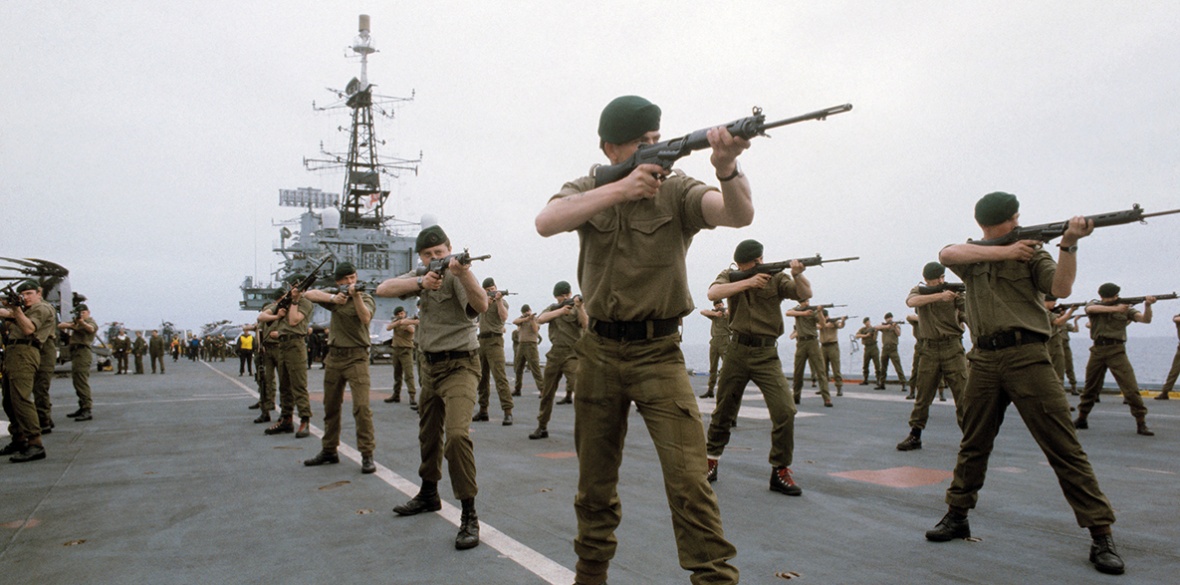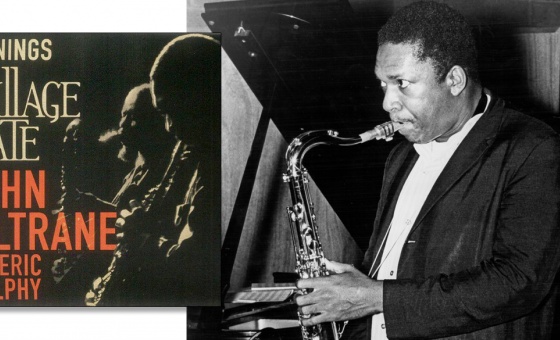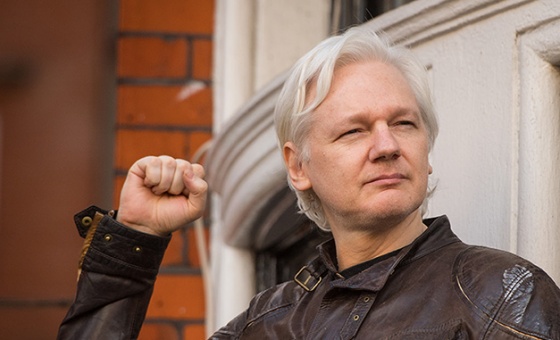This is the last article you can read this month
You can read more article this month
You can read more articles this month
Sorry your limit is up for this month
Reset on:
Please help support the Morning Star by subscribing here
ON MAY DAY 40 years ago, anti-war campaigners were arrested in cities around Britain.
Argentinian troops had invaded the Falklands Islands a month earlier. The British naval task force had been dispatched to the South Atlantic and the Thatcher government avoided a negotiated settlement. All-out war looked likely to break out very soon.
On May 1, 1982, the Peace Pledge Union (PPU) called a country-wide day of protest and resistance. Demonstrations and vigils took place in at least 30 towns and cities. Some involved small-scale marches, others were more dramatic. Women in Sheffield occupied a Royal Navy recruitment office. Another recruitment office was paint-bombed in Holborn. Protesters in Glasgow were arrested while handing out leaflets and selling newspapers.
The day coincided with the RAF’s bombing of Port Stanley airstrip, the first British military action on the Falkland Islands themselves. When peace activists in Britain heard the news, some were keen to respond with direct action.
At about 3pm, they heard that there were press and television cameras clustered around the Ministry of Defence (MoD). “It seemed too good a chance to pass over,” explained Charles Davey of London Peace Action. Plans were made speedily for a vigil at the MoD, followed by pouring artificial blood on the steps.
“We knew we were likely to be arrested,” said Davey. “We discussed who would — who could — take part; who would be in the support group talking to the press, police, observing.”
Five of the blood-pourers were arrested and charged with criminal damage. The ministers, generals and admirals, meanwhile, were never arrested for spilling real blood.
I cannot claim to have taken part in any of these actions myself. Forty years ago, I was only five years old, so I had other things on my mind.
If you’re older than me, you may well have first-hand memories of the protests against the Falklands War. If you’re much younger than me, then it may feel like a historical event only.
I am in between — I grew up knowing about the Falklands War as a recent event. As a teenager during the Gulf War of 1991, I heard frequent comparisons with the Falklands. It took me a while to realise that much of what I had heard about the Falklands was wrong, or at least selective.
Like most working-class people who grew up under Thatcher, I have no illusions about the depths she would sink to, so I was unsurprised to discover that her rhetoric about the rights of Falkland Islanders was not matched by her behaviour in the preceding years. The British government had for some years been negotiating with Argentina for a compromise over the Falklands. When the Nationality Act was passed in 1980, Falklanders were denied British nationality. The British government had happily authorised arms sales to the Galtieri regime in Argentina.
None of this justifies Galtieri’s military aggression. It serves instead as a reminder that both the British and Argentinian governments had their own ends in mind. There were better ways to resolve the dispute than for two right-wing rulers to send working-class teenagers to kill each other.
In recent years, I have realised that another common claim about the Falklands War is also inaccurate. I have often been told that it was almost universally supported by the British public. But as I researched my new book on the history of peace activism, it became ever clearer to me that the opposition was both more widespread and more active than is often assumed.
While there is no doubt that the majority of the British population supported the war, a significant minority were opposed. Shortly after the war had finished, as Thatcher and her allies whipped up jingoistic hysteria, a poll for the Economist found that 22 per cent of the population considered that the war had been wrong.
Given the jingoistic atmosphere, it is not surprising that some who had doubts kept their heads down. Older peace activists have told me it was “the hardest war to campaign against.”
Ann Feltham, a PPU member who leafleted regularly against the war, recalls that “while some people were hostile, many took leaflets or confided that they too had doubts.”
On the day of resistance on May 1, Nottingham pacifists were surprised by how many passers-by agreed with them when they handed out leaflets with the local CND group.
In the naval city of Plymouth, activists found far less support. Robert Harris, a peace activist in Bangor, found a much more sympathetic response from Welsh-language media than their English-language counterparts.
At times, there was vicious hostility. “It was a very difficult time to be an anti-militarist,” remembers PPU member Albert Beale. “It was very lonely in a sense.” When anti-war campaigners marched through London on May 23, they encountered pro-war slogans blasted through loudspeakers by the so-called Coalition for Peace through Security, a Tory group set up to attack the peace movement.
The final arrests related to the Falklands War came on October 12 at the Victory Parade. A group who had planned to chain themselves across the road were bundled into a police van before they could do so. One was knocked unconscious in the process. Peace News reported on “the many people held in police vans for the duration of the march, presumably for not looking enthusiastic and patriotic enough.”
By the end of 1982, the Anti-Falklands War Support Network reported that they were aware of 118 arrests of anti-war activists. This is a small number compared to many earlier and later wars. There is no doubt that the Falklands War had a lot of public support.
But as I have researched it, interviewed people who resisted it and dug through the archives of peace campaigns, I have discovered that it is an outright denial of the evidence to say that almost everyone supported the Falklands War. Wherever there is war, there will be resistance.
Symon Hill’s book The Peace Protesters: A History of Modern Day War Resistance is available for pre-order now: www.mstar.link/ResistWar.











